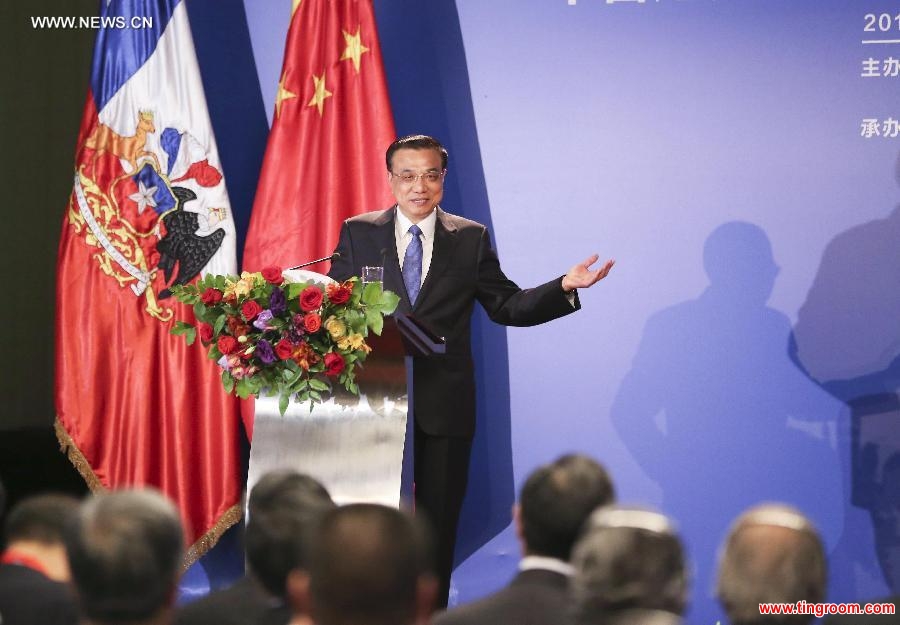CCTV9英语新闻:李总理结束了四国之旅
(单词翻译:单击)
Premier Li Keqiang has wrapped up his tour of Latin America, after signing agreements boosting trade and investment in key areas such as infrastructure, mining and energy with Chile.

Chinese Premier Li Keqiang addresses the opening of an economic and trade seminar marking the 45th anniversary of the establishment of China-Chile diplomatic relations and the seventh meeting of the China-Chile Business Council in Santiago, capital of Chile, May 26, 2015. (Xinhua/Ding Lin)
The tour lasted eight days and included four nations and a range of agreements for investment and trade.Li held a flurry of meetings in Brazil, Colombia, Peru and Chile, with the hope that a new phase of increased trade is ahead. Speaking in Santiago, Li highlighted China's economic vision.
"To revive the global economy, we need to grow a real economy. Developing countries need to speed-up the process of urbanization and industrialization, while developed countries need to be re-industrialized. We should focus on infrastructure construction, to push forward the equipment manufacturing industry, raw material industry, and also the relevant service industry," Li said.
This official visit took place in the context of China's pledge to invest US$250 billion over the next 10 years. A proposed US$10 billion 5,300 kilometer railway project, linking the Atlantic with the Pacific Ocean from Brazil to Peru was the most eye-catching announcement. Just as innovative was the creation of the first yuan-clearing bank in Chile, allowing the use of the Chinese currency for trade in the region—a new mechanism aimed at boosting commerce.
The various business agreements were offset by a report by the United Nations Economic Commission for Latin America. Trade between the region and China dropped in 2014, having reached a historic high point the year before, driven down in part by China's declining demand for Latin America's raw materials.
The overall tone of Li's visit to South America has been viewed as positive, forward-looking and ambitious. But the underlying question remains—whether these talks and agreements of the past week will translate into improved trade.




